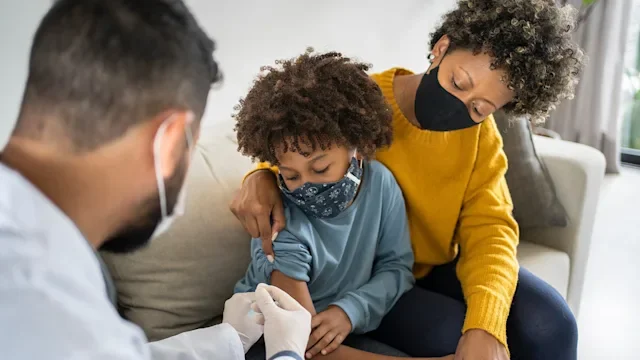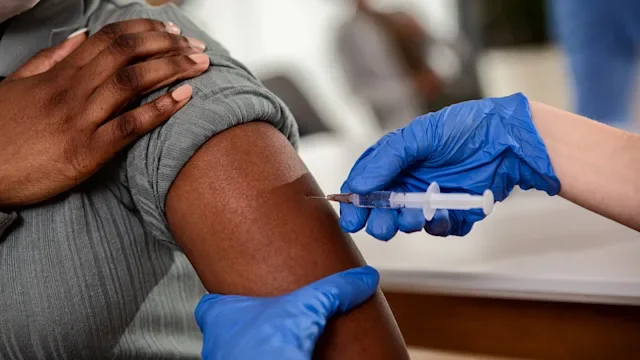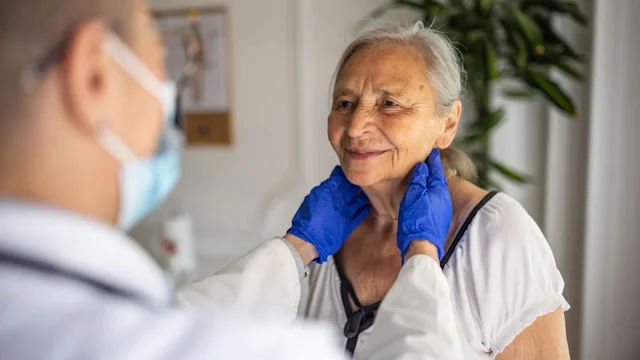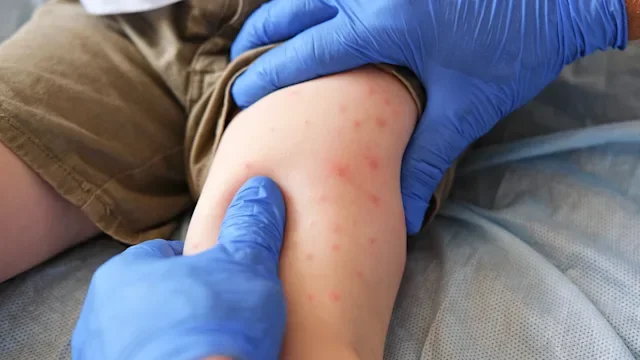Key takeaways:
If your child missed some of their regular shots because of the pandemic, you aren’t alone.
The Centers for Disease Control and Prevention (CDC) has a vaccine catchup schedule that can be used to design a safe and efficient vaccination plan for your child.
During the COVID-19 pandemic, rules changed to make it easier for kids to get routine vaccinations.
When the world shut down in the spring of 2020, many families chose to keep kids home instead of taking them to routine appointments like checkups. One result was that many youngsters missed their regular childhood vaccines.
For some families, this seemed to be the right choice at the time. After all, taking a healthy kid into a medical office during a pandemic felt risky. And at first, most people believed the lockdown would only last a few weeks.
But by May 2020, the CDC reported that fewer vaccines were being given. In August, the U.S. Department of Health and Human Services changed rules to make it easier for kids to get their regular shots by giving pharmacists permission to vaccinate. Even so, one report from Alabama found that there were only half as many childhood shots given in 2020 as there had been during the same time period in 2019.
Making sure your child is fully vaccinated is important. And these days, there are ways to do it safely. Here’s what you need to know about catching your child up on routine vaccinations.
What is the CDC vaccine schedule for children?
For most healthy children, the CDC recommends vaccination against 16 life-threatening diseases. According to the standard vaccine schedule, your child is due for shots when they are:
1 day old
1, 2, 4, and 6 months old
12 to 15 months old
4 to 5 years old, or just before starting school
11 years old
16 years old
In addition, most kids should get a flu shot once a year.
What happens if my child misses a vaccine?
There are always some kids who miss getting their shots, but those numbers are much higher this year. While it might make you feel comforted to know you’re not alone, this situation actually makes the problem worse. Diseases that used to be rare could become common if large numbers of kids aren’t vaccinated against them.
What to do
In addition to the regular vaccine schedule, the CDC publishes a catchup schedule that healthcare providers use to navigate the different ages and circumstances of each child who misses shots. Using this guide, your kid can get up-to-date in a safe, organized way.
Read more like this
Explore these related articles, suggested for readers like you.
This means your child can begin to catch up on vaccines as soon as you are able to take them in for an office visit.
What are the most important shots to get first?
All of the vaccines on the CDC shot schedule are important, but they aren’t all the same. Depending on the age of your child, you and your healthcare provider might have some decisions to make. Some of the things you’ll want to take into account are:
Which vaccines your child is missing
Whether or not your child is still within the recommended age range for vaccines they missed
Other medical conditions your child has
Any particular diseases circulating in your community right now
Plans you have for travel to high-risk areas
Which vaccines are absolutely necessary?
Since all of the diseases on the list could be life-threatening, it is difficult to call any of the vaccines unnecessary. In fact, vaccines don’t get put on this list until experts have debated them and concluded that they are necessary.
It’s true that each disease is different, and so is each child. Sometimes individual circumstances might make some vaccines more critical than others. For example:
Children with heart or lung problems face a higher risk from respiratory illnesses like measles, haemophilus influenzae B (HiB), and flu.
Babies in daycare will benefit from early protection against rotavirus, which spreads quickly through daycares.
Children with certain underlying medical conditions, like sickle cell disease or diabetes, won’t want to delay getting vaccinated against the deadly pneumococcus.
Anyone who lives with a newborn should make sure they’re up to date on their pertussis vaccination.
That said, all of the diseases on the vaccine schedule have the potential to be deadly. Experts recommend catching up on everything you missed, as soon as you can.
When is my child too old to need shots?
Shots continue all the way through life. In fact, there is a vaccine schedule for adults, too.
If your child has never had any vaccines, or if you don’t know if they have, there is a recommended set of vaccines to start out with — no matter how old they are.
Why do babies need so many shots?
Vaccinating babies is especially important because they are vulnerable. Without vaccines, infants are at risk for a number of life-threatening infections. As kids get older, their bodies become better able to handle serious infections — but some diseases remain dangerous throughout life. Older kids, teens, and adults get vaccines against diseases that could affect them.
Sometimes, we also vaccinate adults and older children to protect vulnerable people they come into contact with. For example:
Children are immunized against rubella to protect pregnant women, who could experience stillbirth if they catch the disease.
Infants are protected from pertussis when the adults and teens around them have been vaccinated against pertussis.
Are there any risks with getting vaccinated during COVID-19?
Not especially. The biggest risk you’ll face is the chance of catching COVID in the doctor’s office or clinic where you go to get your child vaccinated — and this is a strong argument for catching up on as many vaccines as possible at each appointment.
Fortunately, over the course of the pandemic we’ve learned a great deal about how to keep COVID-19 from spreading. Most healthcare sites these days are well-prepared to keep it contained. If you take COVID precautions seriously, your risk of catching COVID at a shot appointment is low.
Should I vaccinate my child for COVID-19?
COVID-19 is a virus so frightening it shut down our country — and much of the world — for the better part of a year. And COVID-19 does affect children. So it seems like a no-brainer to get the kids vaccinated against COVID, right?
Not so fast. At the time of this writing, there isn’t a vaccine for children younger than 16 available yet — and it’s not clear when there will be. When a vaccine does become available, you’ll want to consider the risks and benefits. Most likely, getting your child vaccinated against COVID will be a good idea. But, unlike the other vaccines on the schedule, the childhood vaccines against COVID-19 haven’t yet been put through many levels of strict testing.
Are my child’s vaccines covered by insurance?
Most insurance plans cover routine childhood vaccinations. The specifics of your insurance plan could vary, but most private health insurance plans cover some or all of the cost for the recommended childhood vaccines.
Are free and low-cost vaccines available?
Probably. If your child qualifies, the Vaccines for Children program could help. This program supplies vaccines to health clinics and medical offices, where they are available for free to kids who are uninsured or who qualify for Medicaid.
The bottom line

Why trust our experts?


If your child missed routine vaccinations because of the pandemic, you’re not alone — but now is the time to get them caught up. There are ways to get these important vaccines safely. Talk to your child’s healthcare provider soon and get those vaccines taken care of before any of the deadly vaccine-preventable diseases has a chance to make a comeback.
















